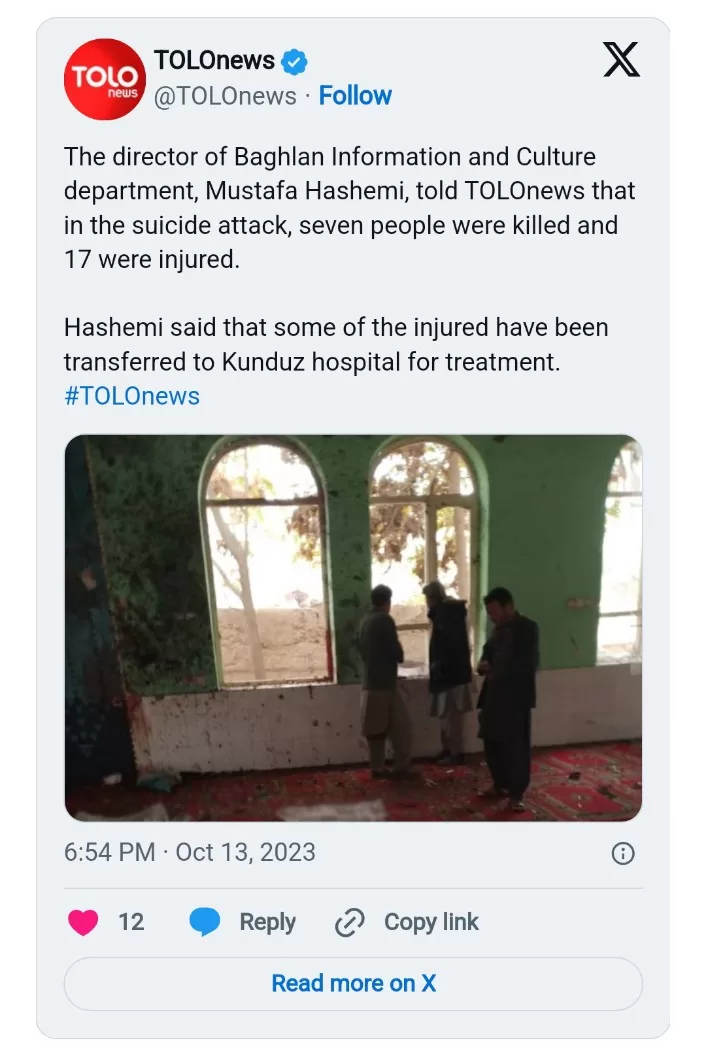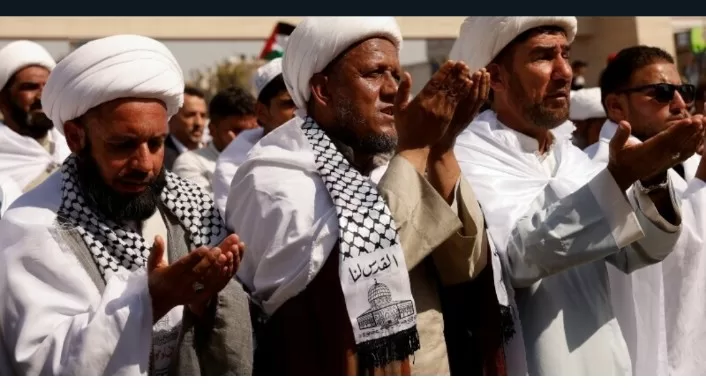A devastating suicide explosion, which struck a Shia mosque in northern Afghanistan on Friday, resulted in a tragic toll of at least seven lives lost and 15 individuals wounded, as reported by the Taliban government. The blast unfolded during the congregation of Shia worshipers for their Friday prayers at the Imam Zaman mosque, located in Pol-i-Khomri, the capital of Baghlan province. The source of this harrowing incident remains unclaimed, leaving an air of uncertainty in its aftermath.
While the frequency of bomb blasts and suicide attacks has markedly diminished since the Taliban’s cessation of insurgency following their ascent to power in August 2021, the region still grapples with threats from various armed groups. Notably, the regional branch of the Islamic State organization remains a menacing presence in the area, perpetuating a state of instability.
The response to the tragedy was swift, with security and investigative forces promptly dispatched to the site in an attempt to discern the circumstances surrounding the explosion. According to Mustafa Asadullah Hashimi, the provincial information and media chief, the investigation is ongoing, acknowledging the grievous losses suffered.
The scale of the catastrophe appears to be even graver, as an undisclosed source within Baghlan Provincial Hospital disclosed a higher toll, with 19 fatalities and 40 wounded individuals already admitted. Some of the victims have also been transported to private medical facilities for treatment, further illustrating the magnitude of the incident’s impact.
In the wake of the explosion, local residents found themselves gripped by fear and confusion. One concerned individual, who feared for the safety of their father and brother within the blast’s vicinity, struggled to ascertain their fate. The hospital surroundings were described as chaotic, with families desperately searching for their loved ones, while security forces maintained a strict cordon around the facility.
This latest act of violence bears the hallmark of the Islamic State group’s regional chapter, which has previously targeted Shia Muslims whom they consider to be heretical. Notably, both the Taliban and the Islamic State share an austere Sunni ideology, but the Taliban’s new leadership has pledged to safeguard the rights of ethnic and religious minorities within the country.
It is crucial to recognize that the Islamic State’s ambitions extend beyond regional instability, as they are committed to the establishment of a global “caliphate,” a contrast to the Taliban’s more modest aspiration of governing an independent Afghanistan with formal international ties. Since the Taliban’s return to power, the Islamic State has undertaken attacks on diplomatic missions in Kabul, targeted ministry buildings, and assassinated two provincial governors, indicating their enduring capacity for violence.
One particularly grim event attributed to the Islamic State occurred in September 2022 when they orchestrated a bombing in a minority Shia neighborhood in the capital, claiming the lives of at least 53 individuals, including 46 girls and young women, according to the United Nations. The Islamic State’s overarching aim appears to be the provocation of sectarian conflict and the destabilization of the region, as evidenced by a UN Security Council report in May, which documented over 190 suicide bombings resulting in over 1,300 individuals either injured or killed since 2022.






